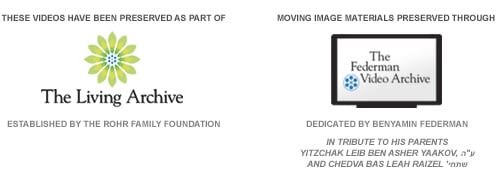ב"ה
Living Torah Archives
Living Torah
Results 1-27 of 27












Videos of the Rebbe about Women, Femininity & Feminism

Talk
19 Kislev, 5722 • Nov. 27, 1961
The tasks of the Jewish people are divided between Torah study and engaging in the physical world. The rule, however, is that commandments don’t override Torah study. Nevertheless, a mitzvah that cannot be done by others does override Torah study; it actually takes priority.

Talk
10 Shevat, 5716 • Jan. 23, 1956
The Midrash teaches that the sin of the Golden Calf was enabled by the men, as opposed to the women who refused to partake in it. Moreover, when it came to contributing materials to build the tabernacle in the desert, it was the women who were first to step up to the task,
followed by the men.

Talk
12 Tammuz, 5733 • Jul. 12, 1973
The Talmud teaches: “Let that man be remembered for good, and Rabbi Yehoshua ben Gamla is his name. Until he came, only children with fathers had the opportunity to study Torah, whereas orphans did not. But Rabbi Yehoshua established Torah schools in every province and city for all children, even as young as six and seven.”

Talk
28 Iyar, 5728 · May 26, 1968
28 Iyar, 5728 • May 26, 1968
Before the Jewish People entered the Land of Israel, the Torah says that G-d “signed the
letters of His holy Name upon them.” Our Sages explain that His main purpose was to vouch
for the women: Although they had been in Egypt for 210 years, the Jewish women did not
emulate the qualities, behaviors and styles of the Egyptian women, and when it came to their
personal conduct, “they did not change their manner of dress.”

Talk
28 Iyar, 5751 • May 12, 1991
When G-d told Moses how to prepare the Jewish people to receive the Torah on Shavuos, He instructed him to speak to the women first, for it was the women’s commitment that would inspire the rest of the Jewish people at the time of the giving of the Torah—and down through the ages.

Talk
25 Iyar, 5744 · May 27, 1984
25 Iyar, 5744 • May 27, 1984
To carry out the holy and life-critical mission of the Jew requires wisdom and understanding
– which G-d granted the Jewish People by giving them His Own wisdom, the Torah, as a
guide. Through Torah, Jews are the “Wise and understanding nation.” But Torah draws a
distinction within Jews themselves: “Greater understanding was granted to woman than to
man,” enabling them to perceive better and deeper, and to apply this perception in daily life.

Talk
10 Shevat 5732 · January 26, 1972
10 Shevat, 5732 • Jan. 26, 1972
At the time of the Song of Moses, the Jews were in the midst of a great journey through an
awesome desert. They had yet to reach, conquer and establish a Jewish homeland. By
contrast, at the time of the Song of Deborah, the Jews were already settled in the Land of
Israel. Deborah was called upon to organize a campaign against Canaanite invaders.

Talk
6 Tishrei, 5741 • Sep. 16, 1980
Sarah, the first Jewish mother, is a shining example of the great power that every woman has over her family and our entire nation. It was Sarah who insisted that Isaac, not Ishmael, continue Abraham’s progeny. It was she who raised Isaac in his formative years, instilling within him the fortitude to stand up to all tests, and to become the second Patriarch of the Jewish People.

Talk
March 18, 1973 • Purim, 5733
14 Adar II, 5733 • Mar. 18, 1973
Mordechai and Esther are the heroes of Purim, yet the Megillah is named only after Esther. And the initiative that the Megillah be included among the books of the Bible came specifically from Esther. Why is Esther given the spotlight, when her success depended on Mordechai’s plan?

Talk
6 Tishrei, 5745 • Oct. 2, 1984
Torah establishes that a child’s People is traced through the mother – who carries and nourishes the growing baby, and who devotedly struggles through the pains of pregnancy, labor and childbirth.
There are those who wish to steal the child from its mother, by “voting” that a child can belong to the father’s People instead. All women should object to such a possibility.

Talk
6 Tishrei, 5745 • Oct. 2, 1984
Torah and Mitzvos are the foundations of every Jewish household. The three most fundamental Mitzvos of Jewish family life – Family Purity, Kosher food preparation, and Shabbos and Festival candles, were given especially to the Jewish woman, as it is she who is the solid pillar of the home.

Talk
17 Sivan, 5740 • June 1, 1980
17 Sivan, 5740 • Jun. 1, 1980
There are three fundamental mitzvot entrusted to every Jewish woman.
Separating challah “from the first of your dough” shows that before benefiting from anything in this world, we “set aside an offering for G‑d.” By knowing that the beginning of everything is for G‑d, the entire home becomes a dwelling place for Him.

Please consider becoming a member of Living Torah today!
Explore Living Torah
























